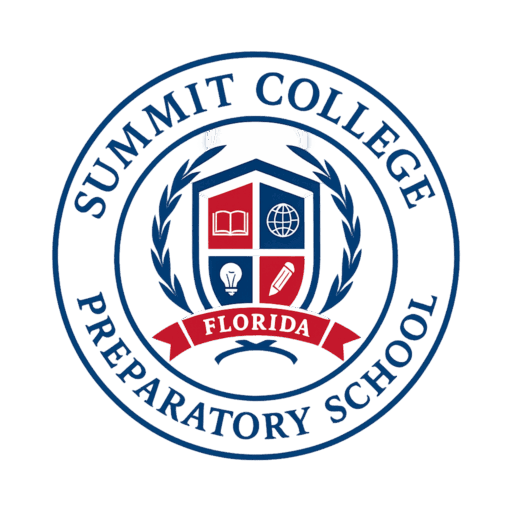English 11 (Standard)
Course Overview
English 11 is a full-year English Language Arts course designed to deepen students’ understanding of American literature, academic argumentation, and rhetorical analysis. The course emphasizes critical reading, research writing, historical context, and oral communication aligned with Florida B.E.S.T. benchmarks and College Board SAT/AP readiness expectations. Students build on prior learning while preparing for higher academic demands.
Major course themes include freedom, identity, the American Dream, civil rights, and social critique. Students will explore texts from various time periods and genres, including novels, speeches, poetry, and nonfiction, engaging in analytical discussions and writing with clarity, evidence, and purpose. Emphasis is placed on understanding author intent, rhetorical choices, and textual nuance.
Through independent reading, multimedia integration, and collaborative projects, students will strengthen their ability to synthesize information, apply grammar rules, and write in multiple forms—narrative, expository, persuasive, and research-based. This course provides a strong foundation for success in English 12, AP English Language, and college-level composition.
Learning Outcomes by Quarter
- Quarter 1: Analyze American foundational texts, identify tone and perspective, and craft analytical essays with embedded citations.
- Quarter 2: Evaluate historical speeches, apply rhetorical analysis, and deliver persuasive oral arguments.
- Quarter 3: Conduct sustained research, develop argumentative essays, and participate in Socratic discussions on civic issues.
- Quarter 4: Study literary realism and modernism, compare themes across time, and produce a multimedia presentation project.
Instructional Methods
Students engage in close reading, guided annotation, peer review, Socratic dialogue, and project-based learning. Instruction integrates visual, auditory, and kinesthetic modalities and supports academic growth with scaffolding and formative feedback. Grammar, syntax, and vocabulary are taught in context and reinforced through regular writing assignments.
Assessment and Grading
| Category | Weight |
|---|---|
| Major Essays & Projects | 35% |
| Tests & Quizzes | 25% |
| Class Discussions & Presentations | 15% |
| Homework & Journals | 15% |
| Participation & Effort | 10% |
Anchor Text Justification
- The Crucible – Investigates moral conflict, hysteria, and historical allegory; introduces rhetorical drama analysis.
- The Great Gatsby – Explores the American Dream, social class, and symbolism; supports literary interpretation.
- Declaration of Independence & Gettysburg Address – Provides foundation for American rhetoric and democratic ideals.
- Native Son or Fences – Introduces racial identity, systemic oppression, and modern American tragedy.
- Paired nonfiction texts – Offers contextual background and expands argument and evidence-based reasoning skills.
College Board – SAT Crosswalk
| College Board Domain | Integrated Skills in English 11 |
|---|---|
| Command of Evidence | Textual integration, rhetorical justification, synthesis writing |
| Words in Context | Historical diction, irony, academic vocabulary |
| Expression of Ideas | Revision, transitions, paragraph coherence |
| Standard English Conventions | Complex sentences, subject-verb agreement, punctuation rules |
Academic Vocabulary Matrix
| Category | Key Terms | Contextual Application |
|---|---|---|
| Literary Forms | Satire, Allegory, Stream of Consciousness | Used in analyzing novels, plays, and speeches |
| Argumentative Tools | Claim, Counterclaim, Rebuttal | Practiced in debates and persuasive writing |
| Syntax & Diction | Appositive, Parallelism, Inversion | Reinforced through stylistic analysis |
| Research Writing | MLA format, Citation, Plagiarism | Used in multi-source research projects |
